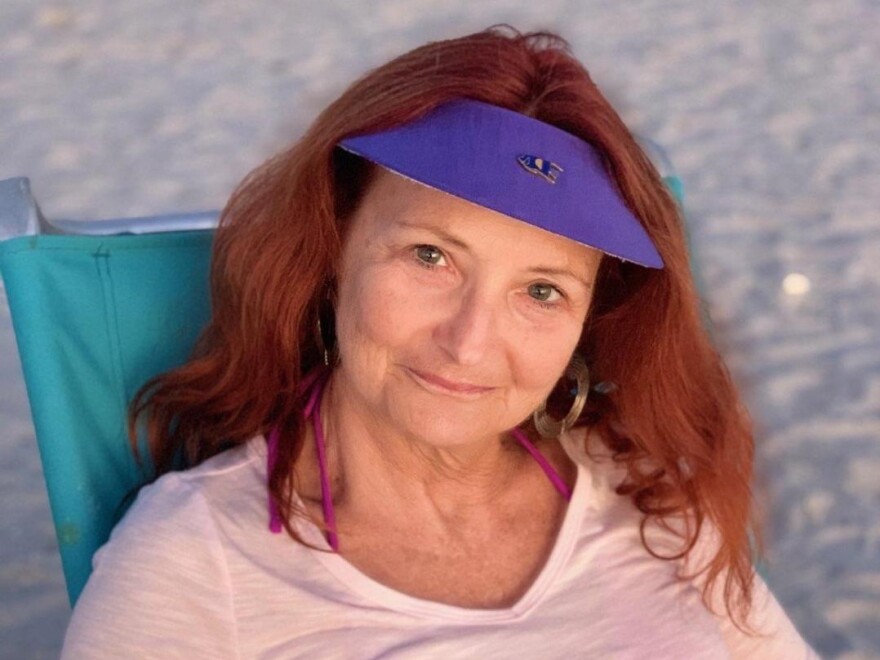From job loss, to balancing work from home to the isolation of following stay-at-home orders, coronavirus has changed our everyday lives. WUSF is giving you a voice to share those experiences.
Today, we meet Debi Butler of Pinellas County.
Butler works part-time as a brand ambassador, helping promote products in Tampa Bay. Like many in the gig economy, her work has stopped for now. But losing income wasn’t her biggest worry.
In her own words, Butler shares how Covid 19's demand on a drug is hurting her ability to treat her own illness.
“Thirty years ago, I was forced into retirement due to systemic lupus. I returned to work though, because disability income doesn't cover the bills anymore. When COVID-19 turned into a pandemic, I had one contract to fulfill, but all other gigs were canceled at that time. But what scared me most was catching the virus. Lupus had left me with half a lung on one side and hearing that this virus attacked the lungs, it was difficult for me to get past the fear of what catching it might meant to me personally. Then, during one of the president's press briefings, the word hydroxychloroquine came out of his mouth. No one knows that word, and even fewer can pronounce it correctly, except for one exclusive part of the population. That's those of us with an autoimmune disease like rheumatoid arthritis, lupus and a few other sister diseases. Hydroxychloroquine is one of the only medications that can actually treat lupus, which is amazing because there is no cure right now....
"I only have four pills left. That's two days of treatment for me. My pharmacy and I are currently playing Wheel of Fortune to see how long it takes to hit the jackpot and find more hydroxychloroquine for me. It may get here tomorrow, next week, maybe a month. Who knows?....
'"It relieves a tremendous amount of pain that goes along with both diseases. I'm assuming that that's why it's being sought after by those with COVID-19. We in the RA and lupus communities live with that pain daily, so we understand why it might be desired, but until it's proven that the use outweighs the dangers--not only are you putting yourself at risk, you're putting countless others at risk of becoming sicker than they are now. My hope is that by understanding how important this medication is to so many others, people will stop hoarding it and wait for official approval for use in COVID-19."
This story is produced in partnership with America Amplified, an initiative using community engagement to inform local journalism. It is supported by the Corporation for Public Broadcasting.





